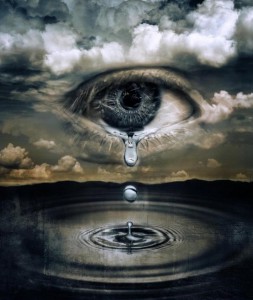Sometimes I wish I just taught math or physics—something dry and formulaic that would not require wading publicly into the messy, unclear, painful areas of life and interpersonal relations. My current mantra is “the personal is planetary.” If this is so, what does it mean for the planet that such a high percentage of my students over the years have revealed such terrible pain and suffering in the classroom over and over again?
Lately I’ve been reading Bill Plotkin’s magisterial work Nature and the Human Soul, in which he argues that human civilization has been stuck for too long (since Gilgamesh, I’d say) in an adolescent stage of development, where young men are encouraged in their shallow enjoyment of violence, sex and glory, and young women are encouraged to be pretty, compliant and deferent to authority.
The students at my institution are generally trying very hard to resist this overwhelming cultural message. They try to think outside the box. They have an earnest desire to be politically correct and intellectually sophisticated. It’s all very well on the purely academic front. But what happens when the cracks in that academic façade appear and reveal deep emotions—anger, grief, fear, desire—that go way beyond the bounds of the merely academic?
Sometimes these emotions can be so frightening that the only sane response seems to be to numb out on drugs (licit & illicit) or get distracted by media entertainment & competition & the race to keep one’s economic head above water. Somehow in my classes these tumultuous, unruly emotions often come leaping into the foreground. I allow and sometimes even encourage our class discussions to “go there,” to go into that dangerous gray zone between the purely intellectual/theoretical and the deeply personal lived experience. I believe that this is the zone where the most productive new thinking happens, the kind that can shift paradigms and change worlds. So I’m willing to risk the discomfort of venturing outside our collective comfort zones, in the hopes that a spark set off in one of our class discussions or activities will ignite a fiery passion that goes well beyond the narrow confines of this class, this semester, or any one student’s career.
But in the aftermath, as I think back on the tears shed, the furrowed brows of the listeners, the potential for aftershocks to occur outside the relatively safe space of the classroom, I can’t rest easy. I feel deeply, myself, the responsibility of leadership, even in the relatively small scale of the classroom. The ripples of our conversations on any given day may spread out for many years, affecting those of us who listened and bore witness to his pain in ways we cannot yet imagine.
Some believe that we human beings are the consciousness of the planet. If the personal is planetary and vice versa, then it could be that these young people are in some sense channeling the pain of our planet itself. We owe it to our youth, to ourselves, and to the great planet we call home, to—at minimum—listen with respect, try to understand, and consider how our choices and actions can contribute to or lessen the pain.
It’s risky to do this active listening and thinking aloud, in the moment, rather than waiting until we are sure we “have it right,” “understand it all,” or “know what to do.” But we don’t have the luxury of time now to get it all perfect. The best we can do is continually check in with our own emotions, and try to be sure that whatever we say or do is rooted in compassion, concern and a sincere desire to make things better.
“In a voiced community we all flourish,” says Terry Tempest Williams. Blowing with love on the shaky fires of these suffering voices, bringing them into a nourishing, respectful community, will help ease not only human suffering, but also, potentially, as the ripples spread out, the suffering of so many living beings on the planet.
LOVE—the one emotion that trumps all others, on both the personal and the planetary scale. The one emotion we can never have too much of, and the one out of which new potentialities continually spring.  May the tears we shed as we think about the pain of the world water the dry, numbed-out hearts of those who profess not to care about the links between the health of humans and of the natural world.
May the tears we shed as we think about the pain of the world water the dry, numbed-out hearts of those who profess not to care about the links between the health of humans and of the natural world.
May we take the pain born of love, and channel it into personal and planetary healing. May we be wise enough to see the connections between our actions and their ripple effects in human society and the planet writ large. May we learn to feel all the love we’re capable of as humans and to act out of that deep wellspring of emotion. Let it be so. Let’s make it so.
